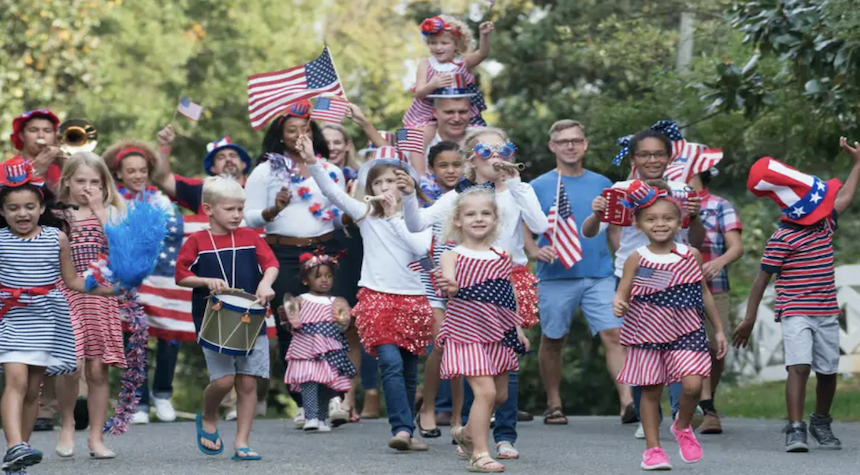My neighbors and I will be celebrating the founding of the United States by raising the state and national flags on Independence Day. This display of unity is shared by both Democrats and Republicans in our community. But the symbols of national unification are disappearing. I suggest some small changes to restore national unity.
First, I propose that purchases of U.S. flags and state flags be exempted from local and state sales taxes. Currently, 14 states offer such an exception. State and local governments that impose sales tax on purchases of U.S. flags and state banners act as a disincentive to make such purchases. Although the deterrence may be modest in nature, such exemptions will have both a substantive and symbolic impact. This exemption would allow flags to be distinguished from those that do not represent national unity. Many people buy flags to promote identity politics and division in society.

The purchase of state flags and the U.S. Flag should be exempted from local and state sales taxes. In the Pledge of Allegiance, we affirm our loyalty to both state and national sovereignty as outlined in the Constitution. The Tenth Amendment states that all government functions, not explicitly delegated to the federal government, are reserved for the states and people. The federal government has grown massively over the last century, which has undermined the separation of powers and the separation of power established by the Constitution. Displaying both the U.S. and state flags reaffirms allegiance within the Federalist system to our state government as well as our national government.

Tax Foundation opposes my proposal to exempt purchases of U.S. flags and state flags from state and local sales tax. Tax Foundation favors broad-based taxes, with low rates and few exceptions. The exemptions for purchasing the U.S. flag and state flags reduce the tax base of local and state sales taxes and make them less efficient. In this case, the public’s interest is more important than efficiency.
My second proposal would mandate the recitation of the Pledge of Allegiance in the United States of America before each school day, with clear exceptions. The majority of states have adopted this requirement. However, the exemptions can be unclear, leading to confusion and unnecessarily litigious situations. Colorado has a similar requirement with many clear exceptions for students and teachers who object on religious grounds. Students can object to the Pledge of Allegiance for any reason by filing an objection with the principal of their school. The Pledge of Allegiance is not mandatory for students and teachers who do not hold U.S. citizenship.

These proposals are often criticized as merely symbolic gestures of unity. But we shouldn’t dismiss them, even if it is a purely symbolic gesture. We conducted a survey on citizen attitudes toward government when I was a member of the Colorado Tax Commission. The majority of respondents said that they believe that our state government wastes a large portion of the tax revenue that it receives and that the federal government wastes the largest amount of revenue that it receives. Recent surveys show that the lack of trust in our financial institutions is increasing over time. This is what the Swiss call “declining dynamic credibility capital.”
We are losing “the glue” that holds together our society in the United States. Even modest changes can increase support for our political institutions. It may be that the absence of “glue”, which holds our nation together, is the biggest barrier to our economic growth and our prosperity.



